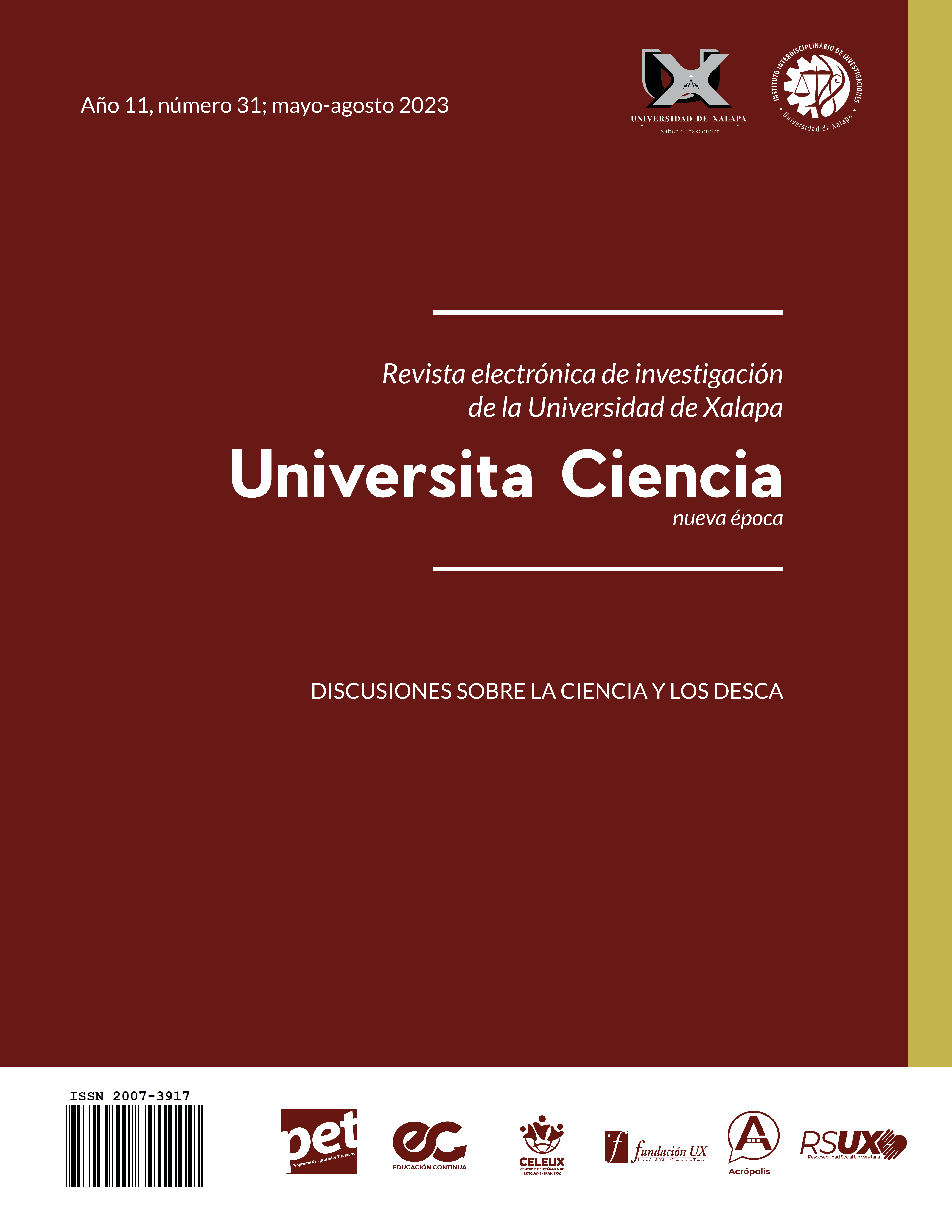ESCR as Human Rights to Freedom of Work, Equality and Non-Discrimination Protect Workers Against Mobbing
DOI:
https://doi.org/10.5281/zenodo.8172545Keywords:
ESCR, mobbing, labor human rights, discrimination, equalityAbstract
The principle of conventionality adopted by Mexico on June 10, 2011 was the key element to achieve acceptance of human rights and the protection of international instruments in favor of citizens and workers in particular by the Mexican State. The primary reform was that of the first article of the Political Constitution of the United Mexican States, in which the expansion of the set of rights is specified, so that it includes four general mandatory characteristics in the field of human rights: respect, protect, guarantee and promote. In addition, the first article of the Constitution, in its last paragraph, establishes the right to non discrimination. The fundamental purpose of the approved reforms was to place the person at the center of all exercise of public power. To achieve this, all the actions of the public power in Mexico are subject to a new parameter of constitutional regulation made up of human rights from national and international sources.
Metrics
References
Alcalde, A. (2023). Ley Federal del Trabajo comentada, reforma de 2019. Porrúa.
Bobbio, N. (2014). Elogio da serenidade e outros escritos morais (Marco Aurélio Nogueiro, trad.). Editorial Unesp.
Casique, I. (2006). Violence against women: theoretical reflections. Revista Latino-am Enfermagen, 4(6).
Cobarrubias, V. A. (2020). La inspección del trabajo en México: El largo camino hacia un modelo laboral basado en el Imperio de la Ley. Red de Mujeres Sindicalistas.
Comisión Interamericana de Derechos Humanos (2023). https://www.oas.org/es/cidh/mandato/Basicos/sansalvador.asp
Comisión Interamericana de Derechos Humanos (s.f.). https://www.cidh.oas.org/Basicos/Spanish/Basicos2.htm
Comisión Nacional de los Derechos Humanos (2016). Derecho humano al trabajo y derechos humanos en el trabajo. https://www.cndh.org.mx/sites/default/files/documentos/2019-05/Cartilla-DH-trabajo.pdf
Comisión Nacional de los Derechos Humanos, México (2019). ¿Sabías que estos también son tus derechos? Derechos económicos, sociales, culturales y ambientales (DESCA).
Despido por embarazo sigue a la cabeza como principal denuncia de discriminación (2023). El Economista. https://www.eleconomista.com.mx/capitalhumano/Despido-por-embarazo-sigue-a-la-cabeza-como-principal-denuncia-de-discriminacion-20210619-0023.html
Furtado de Oliveira, P. A. (2021, 31 de mayo). Reforma de outsourcing. Lección de consenso para futuros cambios laborales. El Economista.
Hirigoyen, M. F. (2001). El acoso moral en el trabajo. Distinguir lo verdadero de lo falso. Paidós.
Höffe, O. (2007). Ciudadano económico, ciudadano del estado, ciudadano del mundo. Ética política en la era de la globalización. Katz.
LA BARBERA, M. C. & WENCES, I. (2020). La “discriminación de género” en la jurisprudencia de la Corte Interamericana de Derechos Humanos. Andamios, 17(42), 59-87. https://www.scielo.org.mx/scielo.php?pid=S1870-00632020000100059&script=sci_abstract
La constitucionalización del derecho laboral. Curso de Especialización sobre la Reforma en materia de Justicia Laboral (2021). Escuela de Formación Judicial, Consejo de la Judicatura Federal.
Lugo Garfias, M. (2017). Acoso laboral “mobbing”. Comisión Nacional de los Derechos Humanos, México.
Maza, M. A. (2009). El mobbing, la violencia laboral y las condiciones dignas de trabajo. Revista de Derecho Laboral, (1).
Mendizábal Bermúdez, G. (coord.). (2002). Equidad de género y protección social. Porrúa.
Mendizábal Bermúdez, G.; Escalante Ferrer, A. &Ibarra Uribe, L. (2016) Acoso laboral de las instituciones de educación a nivel superior. Porrúa, UAEM.
Molina Armenta, A. (2010). Violencia hacia las mujeres en el ámbito laboral en México [tesis de maestría, El Colegio de México]. Repositorio institucional. https://repositorio.colmex.mx/concern/theses/7s75dc83b?locale=es.
Organización Internacional del Trabajo (2013). Género, salud y seguridad en el trabajo. Hoja Informativa 4. El hostigamiento o acoso sexual. https://www.ilo.org/safework/areasofwork/gender-and-occupational-safety-and-health/lang--es/index.htm
Organización Internacional del Trabajo (2019). Trabaja para un futuro más prometedor. Comisión Mundial sobre el Futuro del Trabajo.
Organización Mundial de la Salud (s.f.). Depresión. https://www.who.int/es/health-topics/la-d%C3%A9pression#tab=tab_1
Pacto Internacional de Derechos Económicos, Sociales y Culturales (1966). https://www.ohchr.org/sites/default/files/Documents/ProfessionalInterest/cescr_SP.pdf
Poyatos Matas, G. (2019, 4 de febrero). Juzgar con perspectiva de género: una metodología vinculante de justicia equitativa. iQual. Revista de Género e Igualdad, (2), 1–21. https://doi.org/10.6018/iQual.341501
Protocolo Adicional a la Convención Americana sobre Derechos Humanos en materia de Derechos Económicos, Sociales y Culturales "Protocolo De San Salvador" (1988, 17 de noviembre). https://legislacion.scjn.gob.mx/Buscador/Paginas/wfArticuladoFast.aspx?q=PlOrqrSvLTzAsqvzQ7fUkzHHvap1QuioWOwy6v9Sc0/8GNljqGmToxeKv9z1s4z2vGId2SfQW2RG6YNyw5Vx5A==
Rojas, C. & Ariel A., (2015). Los derechos humanos en México. Porrúa.
Ugarte, J. L. (2012). El acoso laboral: entre el derecho y la psicología. Revista de Derecho de la Pontificia Universidad Católica de Valparaíso, XXXIX(39), 221-231. http://dx.doi.org/10.4067/S0718-68512012000200008
Vela Barba, E. (2021). Manual para juzgar con perspectiva de género en materia laboral. Suprema Corte de Justicia de la Nación, México.
Published
How to Cite
Issue
Section
License

This work is licensed under a Creative Commons Attribution-NonCommercial-ShareAlike 4.0 International License.
This journal adheres to the Creative Commons license in the definition of its policy of open access and reuse of published material, in the following terms:
- Accessibility to articles and other publications in whole or in part under the concept of copying, distribution, public communication , interactive access (through the Internet or other means), explicitly maintaining the recognition of the author or authors and the journal itself (authorship acknowledgment).
- Warning that if the articles are remixed, modified or fragments used in other creations, the modified material cannot be distributed, nor is it allowed to reconstruct versions from the original published articles (derived works).
- The use of the contents of the published articles, in whole or in part, for profit (non-commercial recognition) is prohibited.
The author retains copyright, transfers or grants exclusive commercial rights to the publisher, and a non-commercial license is used.














